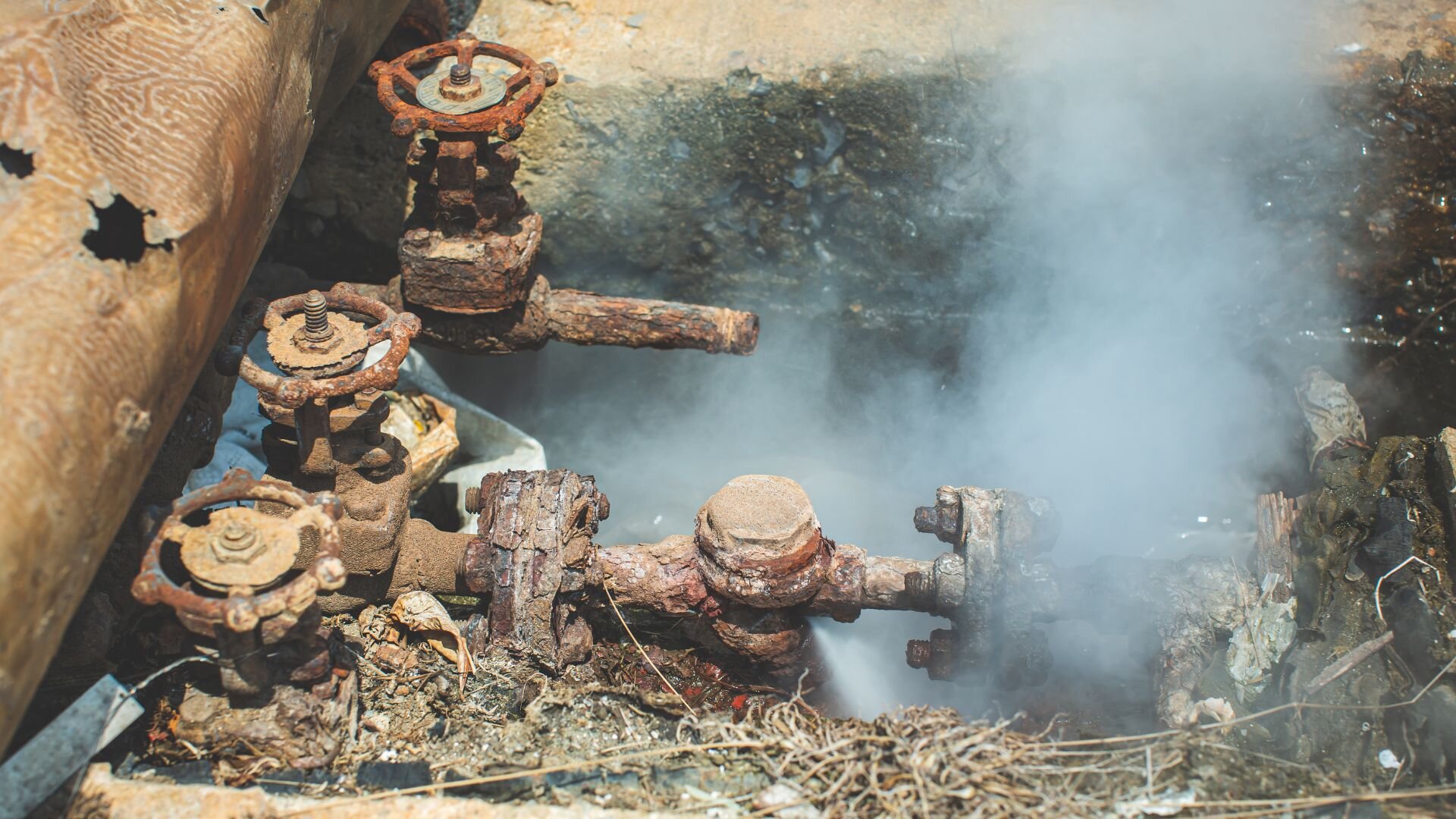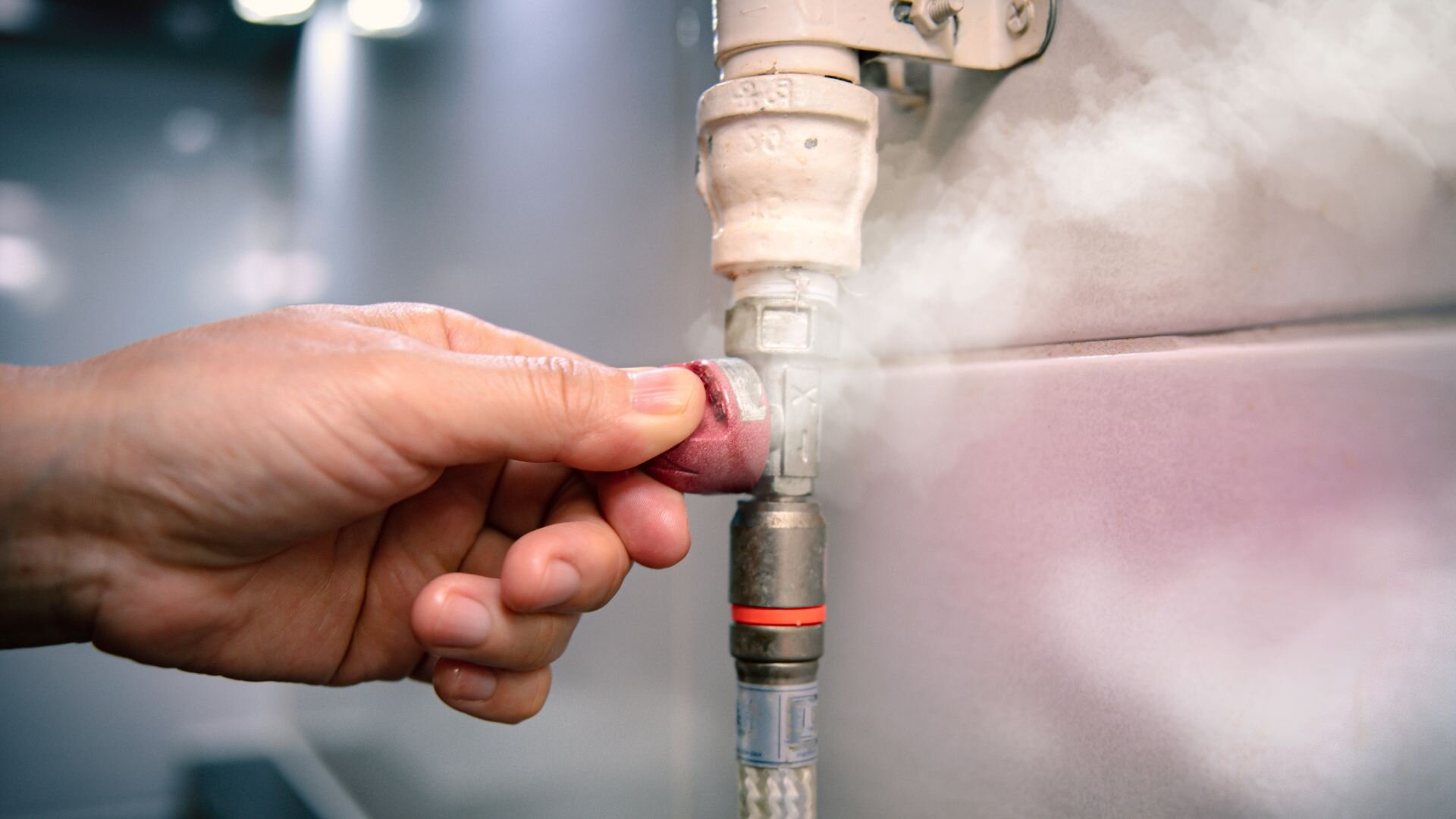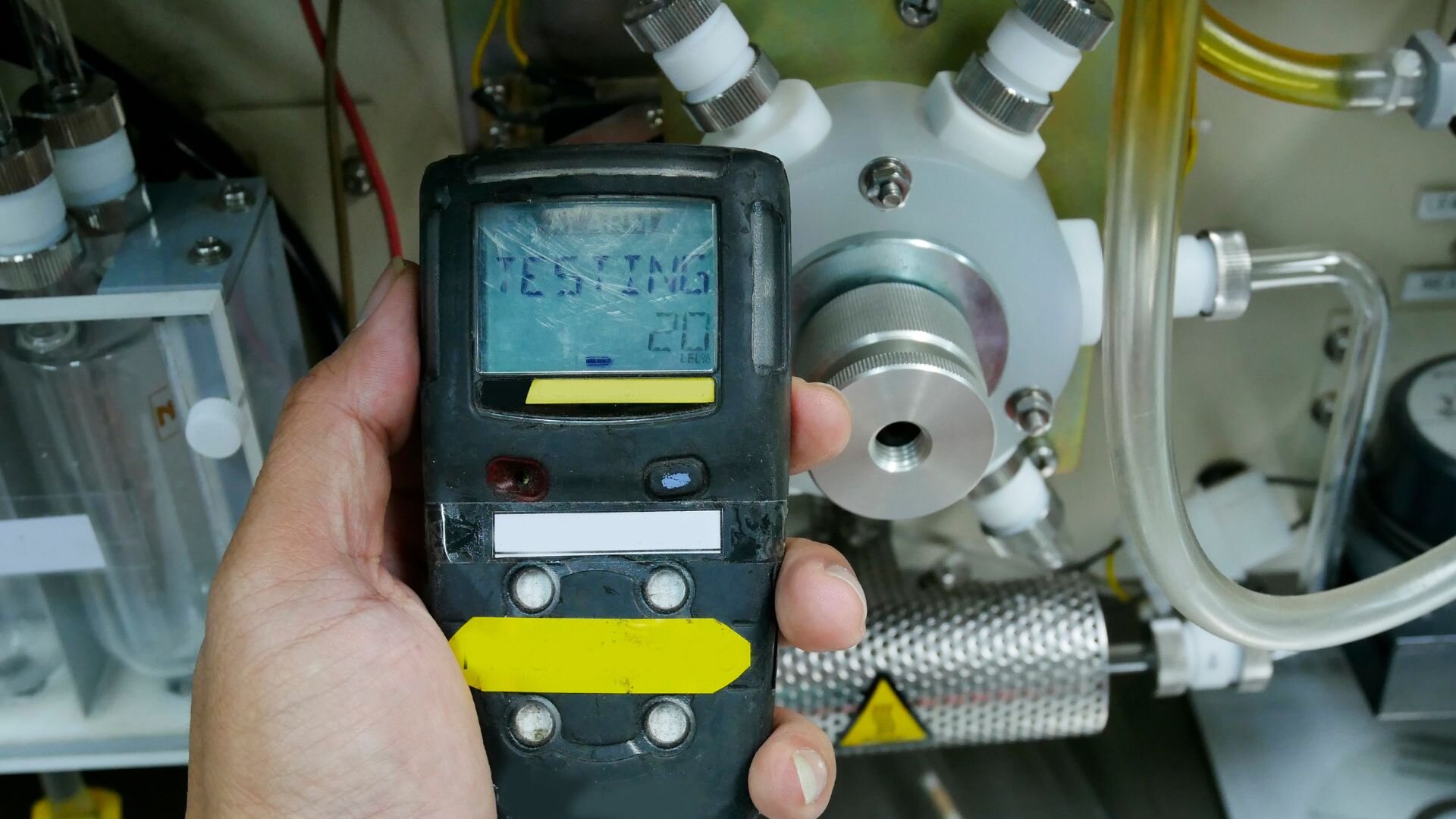Gas leaks are a serious and potentially deadly issue that every homeowner needs to be aware of. Whether you use natural gas for heating, cooking, or powering your hot water system, a gas leak can occur at any time and pose a significant risk to you and your loved ones. The consequences of a gas leak can be devastating, ranging from carbon monoxide poisoning to explosions and fires. That’s why it’s crucial to know the signs of a gas leak, such as the smell of rotten eggs or hissing and whistling sounds near your gas lines and appliances, and what steps to take immediately after detecting one.
In this blog post, we’ll provide you with a step-by-step guide on what to do if you suspect a gas leak in your home, from turning off the gas supply to contacting your gas company and ensuring your safety.
Recognising the Signs of a Gas Leak
Knowing how to detect a gas leak is essential for ensuring your safety and that of your loved ones. If you suspect a gas leak in your home, taking immediate action is crucial to prevent a potential gas leak emergency. Here are some common signs that can help you identify a gas leak:

Rotten Egg or Sulphuric Smell
One of the most common gas leak indicators is the smell of rotten eggs or sulphur, known as mercaptan. This odour is added to natural gas to help detect leaks, as it is colourless and odourless. If you smell gas in your home, acting quickly and evacuating the area is essential.
Hissing or Whistling Sounds
Another sign of a gas leak is the presence of hissing or whistling sounds near your gas appliances or gas lines. These sounds indicate that gas is escaping from a damaged or loose connection. If you hear these sounds, turn off your gas supply immediately and call your gas company.
Dead or Discoloured Vegetation
It could be a sign of a gas leak if you notice dead or discoloured vegetation near your gas meter or gas lines outside your home. Natural gas leaks can cause soil to become acidic, harming plant life. If you observe this sign, contact your gas company for an inspection.
Physical Symptoms Like Dizziness or Nausea
Exposure to gas leaks can lead to physical symptoms such as dizziness, nausea, headaches, and fatigue. In severe cases, gas leaks can cause carbon monoxide poisoning, which can be fatal. If you or your family members experience these symptoms and suspect a gas leak, evacuate your home immediately and seek medical attention.
To protect your loved ones from the dangers of gas leaks, it’s crucial to have carbon monoxide detectors installed in your home and to know how to turn off your gas supply in case of a suspected leak. If you suspect a gas leak, don’t hesitate to call your gas company for assistance.
Immediate Action Steps After the Gas Leak Detection
If you suspect a gas leak in your home, taking immediate action is crucial to ensure your safety and prevent further damage. Natural gas leaks can be hazardous; even a small spark could trigger an explosion. Here are the steps you should take as soon as you detect a gas leak:

Evacuate the Area Immediately
The first and most important step is to evacuate the area immediately. Don’t take any chances; gather your family and pets and leave the premises as quickly as possible. Ensure to alert any neighbours who might also be affected by the gas leak.
Do Not Operate Electrical Switches or Devices
When there’s a gas leak, it’s essential not to operate any electrical switches or devices, including your gas stove or gas appliances. Even a tiny spark from flipping a light switch could cause an explosion. Use a flashlight if necessary, but avoid turning on any electrical devices.
Turn Off the Gas Supply Valve If Possible
If it’s safe, locate your gas meter and turn off the gas supply valve. This will stop gas flow into your home and prevent further leakage. However, if you’re unsure how to turn off the valve or it’s not easily accessible, wait for professional assistance.
Open Windows and Doors for Ventilation
Open all the windows and doors in your home to help disperse the gas and reduce the risk of an explosion. This will allow fresh air to circulate and dilute the concentration of gas in the area.
Call Emergency Services and Gas Company
Once you’ve evacuated the area and taken the necessary precautions, call the emergency services and your gas company immediately. They will send a licensed gas fitter to assess the situation, take appropriate action to repair the leak, and ensure your home is safe.
Wait for Professional Assistance
Do not attempt to re-enter your home or investigate the gas leak yourself. Wait for the licensed gas fitter and emergency services to arrive and give you the all-clear. They have the expertise and equipment to handle gas leaks safely and efficiently.
Preventing Future Gas Leaks
While it’s essential to know how to respond to a gas leak emergency, it’s equally important to take proactive measures to prevent gas leaks from occurring in the first place. Here are some key steps you can take to reduce the risk of gas leaks in your home:

Schedule Regular Gas Line Inspections
One of the most effective ways to prevent gas leaks is to schedule regular inspections of your gas lines and appliances by a licensed gas fitter. These professionals can identify potential issues, such as corroded pipes or loose connections, and make necessary repairs before a leak occurs. It’s recommended to have your gas lines inspected at least once a year or as your local gas company advises.
Promptly Repair Any Damaged Gas Lines
If you notice any signs of damage to your gas lines, such as cracks, dents, or corrosion, it’s crucial to have them repaired promptly by a licensed professional. Ignoring these issues can lead to gas leaks over time, putting your home and family at risk. Make sure to address any concerns as soon as they arise to prevent more serious problems.
Install Gas and Carbon Monoxide Detectors
Installing gas and carbon monoxide detectors in your home is an essential safety measure that can alert you to the presence of gas leaks or carbon monoxide build-up. Make sure to place these detectors in strategic locations, such as near gas appliances and bedrooms, and test them regularly to ensure they function correctly. If a detector sounds an alarm, evacuate your home immediately and call your gas company or emergency services.
Don’t Let a Gas Leak Catch You Off Guard – Be Prepared and Stay Safe!
Detecting a gas leak in your home can be a frightening experience, but by knowing the signs and symptoms of a gas leak and understanding what to do in case of a suspected leak, you can keep yourself and your loved ones safe. Remember, if you smell gas or notice any gas leak indicators, such as hissing sounds or dead vegetation near your gas lines, it’s crucial to act quickly and evacuate your home immediately.
Don’t take any chances when it comes to gas safety—always err on the side of caution and contact your gas supplier or the Australian Gas Association AGA for assistance. If you do experience a gas leak emergency, make sure to shut off your gas supply and call for professional help right away.
To prevent gas leaks from occurring, consider installing a carbon monoxide detector and having your gas appliances and lines regularly inspected by a licensed gas fitter. By taking these proactive steps, you can reduce the risk of a natural gas leak in your home and enjoy the benefits of using natural gas safely and with peace of mind.
If you ever encou ntera burst gas pipe or any other gas-related emergency, don’t hesitate to contact the experts at Service First Plumbing. Our team of experienced professionals is dedicated to ensuring your gas safety and providing fast, reliable service when you need it most. We understand the urgency of gas leak situations and are equipped to handle any gas-related issues that may arise inside your home.


